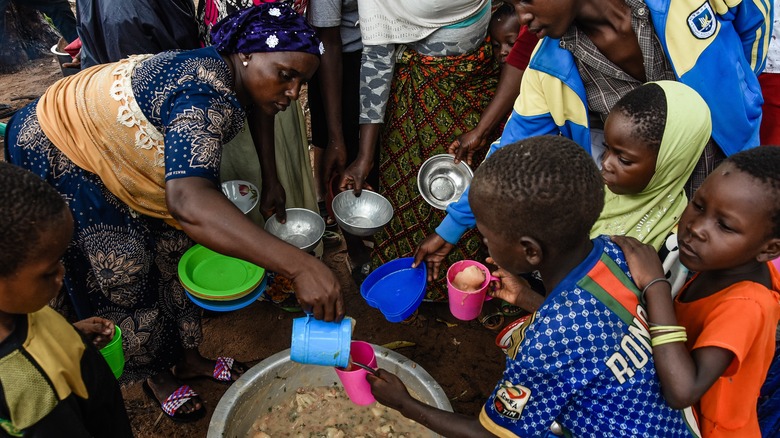A New Report Shows The World Is Falling Short In Addressing The Hunger Crisis
In early February, the Food and Agriculture Organization (FAO) and other global entities issued a public warning that called on donors and government leaders around the world to fight harder to combat the worsening food crisis. The statement, shared by the United Nations, featured some startling numbers. For one, it claimed that nearly 350 million people across 79 countries are currently "acutely food insecure," and that conditions won't improve so long as droughts continue to ravage farmland and leaders continue to implement trade restrictions on food — vegetables, in particular — from poor countries.
It will take more than a few weeks to address the sprawling and multi-faceted crisis, which has been exacerbated by the war in Ukraine and the lingering effects of the pandemic, but swift action is more dire than ever. According to the Action Against Hunger's 2023 Hunger Funding Gap Report, released on February 22, funds for global hunger programs are at a historic low. In fact, the UN is currently looking at a 53% funding gap.
Funding is behind the demand for food
A growing demand for hunger relief doesn't necessarily mean increased funding for such programs. Action Against Hunger's 2023 Hunger Funding Gap Report shows that the number of people facing famine increased by 18% in 2022, while funding has been slow to keep up. Shockingly, the report also found that countries with the highest rates of hunger (including Afghanistan and Haiti) received a smaller percentage of hunger-funding appeals than countries with lower hunger rates. In the Somali Peninsula, also known as the Horn of Africa, famine is on the rise. Yet, not a single UN appeal for hunger funding in that entire area was met in 2022.
Even areas that do benefit from hunger programs are still struggling. The report claims that, in 2022, 65% of hunger programs were poorly funded, while full funding only touched 3%. To help close the gap, the report calls on wealthy countries to step up for poor ones by offering flexible, multi-year funding that takes drastic needs into account. The UN can't reach its Zero Hunger by 2023 goal without that support.

